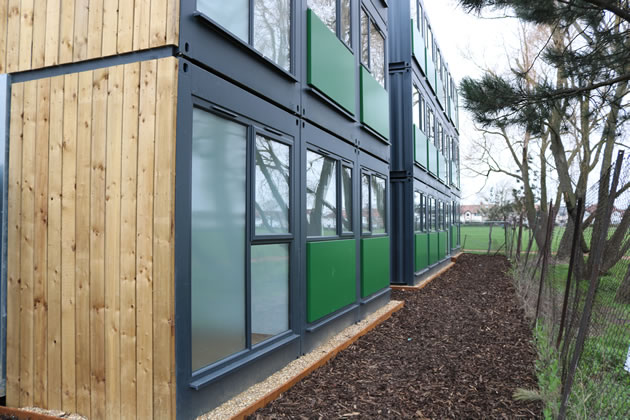Ealing Spends Over £37 Million A Year on Temporary Housing
Looking to modular scheme to bring down cost

Picture: Malcolm Garret/Pexels
Over £37 million was paid to private landlords from Ealing Council last year for temporary accommodation for the borough's most needy.
The figure, which has remained largely unchanged for the last three years, was criticised by some, who said the money could be better spent building more social housing, rather than ‘lining the pockets of landlords’.
An Ealing Council spokesman however pointed out the landlords were paid below market rent, and said investment in modular housing was a main focus in the search for a solution to the housing shortage.
According to figures provided under the Freedom of Information Act, there were 2,173 people in temporary accommodation on 31 March – a slight decrease from previous years – with the average stay lasting four and a half years before permanent housing was found.
There were an additional 7,264 on the housing register, and 10,530 in social housing at that date.
| Money paid to private providers by council for temporary accommodation | |
| 2018/19 | £37,337,200.00 |
| 2017/18 | £37,173,488.00 |
| 2016/17 | £39,634,438.91 |
Conservative councillor Joy Morrissey said it was “difficult not to conclude that the council would secure better value for money and better meet people’s housing needs by building more social housing”.
Of those in temporary accommodation 302 were in bed and breakfasts, 114 were in hostels, 1,279 were in private sector houses, 305 were in licensed added-on properties and 173 were in their own homes.
| Where are people being housed temporarily? - Ealing Borough | |
| B&B | 302 |
| Hostels | 114 |
| Private sector | 1,279 |
| Licensed annexes | 305 |
| Their own homes | 173 |
Ms Morrissey said, “The council has committed to an ambitious plan to tackle the housing shortage in Ealing which I fully support.
“I genuinely want them to achieve this aim but my concern is over the implementation and building schedule and whether they will hold developers to account on their commitment to build more social housing.”
The council also has an overall aim of creating 2,500 new affordable homes by March 2022.
Being housed in temporary accommodation was a long and stressful process for families in particular, she said.
| Number of people in temporary accommodation - Ealing Borough | |
| March 31, 2019 | 2,173 |
| March 31, 2018 | 2,277 |
| March 31, 2017 | 2,233 |
| March 31, 2016 | 2,254 |
Andrew McLeay runs the St John’s Church soup kitchen in West Ealing, and has seen the struggles of being temporarily housed first-hand. He said the first reaction from recipients was simple relief, but that could quickly change to anxiety.
Often people began to feel like they had a home, but then new residents would move in or circumstances would change, which could create a whole new mental strain for residents.
For those placed in hostels, Mr McLeay said they would often find themselves around others with either mental health or addiction issues, which could result in back-sliding.
He said: “The number one request from us is a TV or something they can have for them but it does end up getting quite stressful because they don’t know where they might get moved on to. It does depend on their mental strength as well.
“I don’t really understand why they are doing all this, putting people up in B&Bs and stuff, because I would think that’s a very expensive way of doing it.”
A council spokesman said the organisation thought it had found more cost effective ways of delivering accommodation, which was why there was investment in more modular housing – which are effectively container homes that can be moved.

Ealing Council's modular housing. Picture: Ealing Council
He said: “We have three sites at present, with a total of 108 self-contained units for local homeless families who would otherwise be placed into bed and breakfast, and a further three in the pipeline.
“The forthcoming relocation of modular housing from Southwark to Ealing will deliver an instant saving of around £125,000 a year for the council by removing the need for bed and breakfast accommodation for the 16 households that will move in.
“We have no control over the numbers of people approaching us as homeless.”
He said income from the properties will total around £214,00 a year, which meant the purchase, relocation and renovation of the buildings will pay for itself in just over eight years.
In many cases, this modular accommodation was also preferable to the partly-shared choices of temporary accommodation, allowing users to feel like they had their own homes.
He said: “All of our modular accommodation is self-contained, with front door, private kitchens and bathrooms, and is thus pretty similar to any other housing, which makes the transition into temporary accommodation easier.”
The spokesman said the council had also bought 81 temporary accommodation units over the last few years and are investigating in more affordable housing to meet demand.
The spokesman said the biggest problem was the capping of housing benefit and the increase in private sector rents.
Ged Cann - Local Democracy Reporter
June 3, 2019